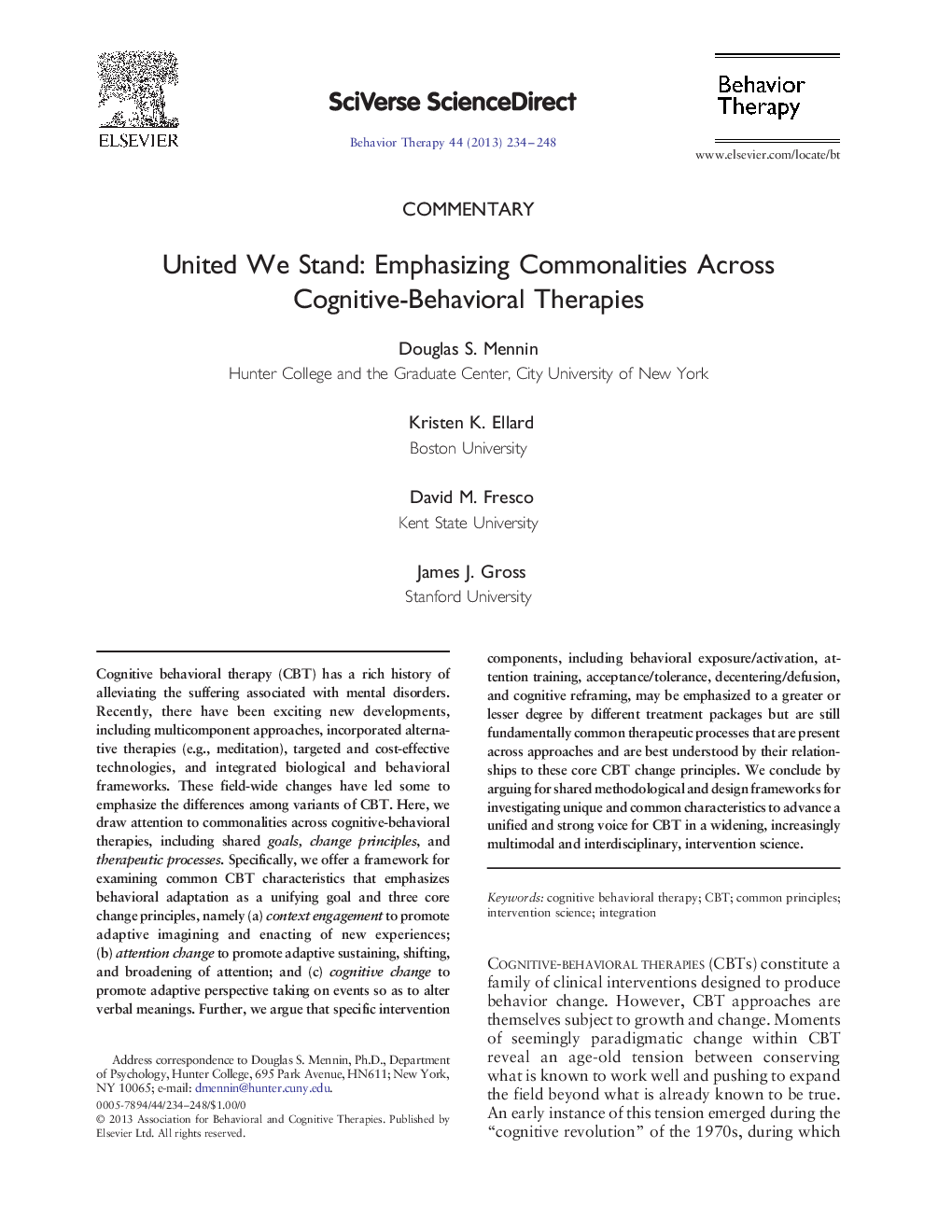| Article ID | Journal | Published Year | Pages | File Type |
|---|---|---|---|---|
| 901303 | Behavior Therapy | 2013 | 15 Pages |
•CBTs have a rich history of established efficacy for treating a myriad of pathological populations•New developments in intervention science suggest the importance of delineating core CBT components beyond establishing efficacy•Common CBT principles include context engagement, attention change, and cognitive change, which promote behavioral adaptation
Cognitive behavioral therapy (CBT) has a rich history of alleviating the suffering associated with mental disorders. Recently, there have been exciting new developments, including multicomponent approaches, incorporated alternative therapies (e.g., meditation), targeted and cost-effective technologies, and integrated biological and behavioral frameworks. These field-wide changes have led some to emphasize the differences among variants of CBT. Here, we draw attention to commonalities across cognitive-behavioral therapies, including shared goals, change principles, and therapeutic processes. Specifically, we offer a framework for examining common CBT characteristics that emphasizes behavioral adaptation as a unifying goal and three core change principles, namely (a) context engagement to promote adaptive imagining and enacting of new experiences; (b) attention change to promote adaptive sustaining, shifting, and broadening of attention; and (c) cognitive change to promote adaptive perspective taking on events so as to alter verbal meanings. Further, we argue that specific intervention components, including behavioral exposure/activation, attention training, acceptance/tolerance, decentering/defusion, and cognitive reframing, may be emphasized to a greater or lesser degree by different treatment packages but are still fundamentally common therapeutic processes that are present across approaches and are best understood by their relationships to these core CBT change principles. We conclude by arguing for shared methodological and design frameworks for investigating unique and common characteristics to advance a unified and strong voice for CBT in a widening, increasingly multimodal and interdisciplinary, intervention science.
